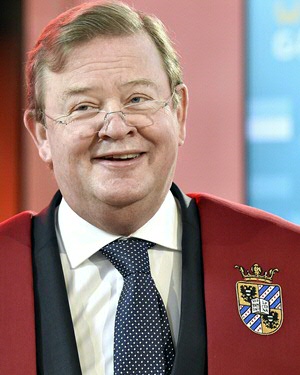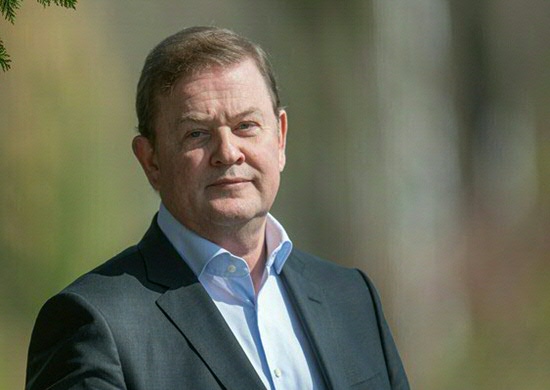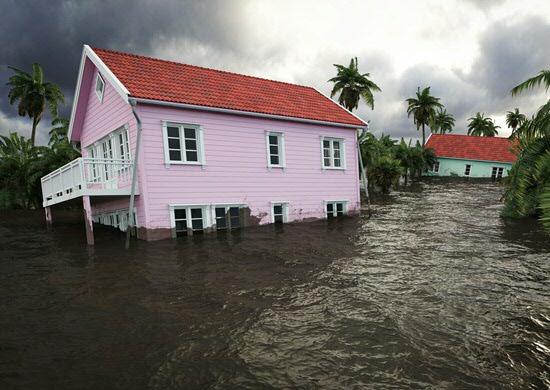Honorary Doctor Feike Sijbesma: ‘I know about the problem, and so does the rest of the world’

Feike Sijbesma, former CEO of biochemical company DSM, received an honorary doctorate from the University of Groningen in early 2021. The reason was his many years of commitment as a ‘captain of industry’ to healthier food, international food aid and the climate crisis.
When Feike Sijbesma became CEO of DSM in 2007, he knew that the chemical company that he now led had to do things differently. DSM, which once began as a state mining company in Limburg, had become successful in the bulk chemicals industry. However, Sijbesma knew that DSM would not be able to compete with the large players in the Middle East and other countries.
Healthy dose of idealism
Sijbesma therefore decided to sell off the petrochemical and bulk chemical divisions and instead focus on biochemicals, nutrition ingredients and high-value materials. For example, DSM started to produce ingredients for cattle feed that would reduce emissions of the greenhouse gas methane. DSM also worked on developing coatings that absorb light for use on solar panels, and it became a wholesale supplier of vitamins, probiotics and unsaturated fatty acids to the food industry. At the same time, Sijbesma wanted to inject a healthy dose of idealism into the core of the company. He therefore began a partnership with the UN World Food Programme.
Money is not the goal
But how does a company that is quoted on the stock exchange have room for idealism, with shareholders breathing down its neck? ‘Just to go back a step: is that even important?’ replied Feike Sijbesma, on receiving his honorary doctorate in Groningen. ‘I think that it is, because you have to contribute to society. The main reason is that the economy was never developed in the first place to make lots of money. The economy started as a form of trade by barter: if you are better at catching buffalos and I am better at growing crops, then you do the buffalos and I’ll do the crops and we can swap. We went on to discover gold, and later we invented money, to make this kind of trade easier.’

A good life
‘Money is therefore a means, not a goal in itself. However, the idea has developed in recent decades that earning money is the whole purpose of the economy. This idea has been propagated for example by economists such as Milton Friedman and CEOs such as Jack Welch of General Electric, but also by Corporate Governance Codes in the Netherlands that state that the primary goal is shareholder value and earning money. When I joined the Managing Board of DSM I thought: is that really true? No, it isn’t! What is important is that we help as many people as possible to live a good life.’
Long term
‘Point two: businesses often have the technical innovation and the international reach to ensure that they have an impact. And, if you have an impact, you also have the responsibility to use it. I believe that, as a company, you should contribute to society from the core of your business, not as something that you do on the sidelines. And there lies the crux, because you also make profit in the core of your business, and not on the sidelines. That means that you need to find a model in which you do your best for yourself and for the world, and that is not always easy. It means making clear to your shareholders that investment in your company is not for the short term, but for the long haul. As a company, you need to be able to demonstrate that “doing well for the company” and “doing well for the world” can go hand-in-hand in the long term.’
Markets
‘Of course, a company is not a charity; there are certain limitations. If we invent new ingredients that reduce methane emissions from cattle, there needs to be a market for them. If we develop a technology to make solar panels more efficient, we have to find customers who want to buy it. And, if we can develop ingredients that make food healthier, we have to be able to sell them.’
Optimizing shareholder value
‘This may not always work in the short term, but it does work in the slightly longer term. This is why I often say: at DSM we aim to optimize, not maximize, shareholder value. That means that we perhaps could have earned more sometimes, but that we also have a responsibility towards others. To give an example: if we build an wastewater treatment plant in Europe because we think that we should, but it is not a legal requirement in China and so our competitors do not, then we will build it any way. DSM may earn less than its competitors in the short term, but in the long term we will create more value for everyone involved. We have finally managed to turn around the focus on short-term results alone, and DSM is now doing well financially in the long term, although perhaps not every quarter.’

Difficult shareholders
There are of course some shareholders who would rather see a little less idealism. In 2014, DSM came under pressure from an active American shareholder who wanted to split up the company. After the departure of Sijbesma, in early 2020, there was also a British shareholder who again expressed the wish for DSM to be split up. And so there is always this kind of pressure, even though the market value of DSM has quadrupled since 2007. In his dealings with difficult shareholders, Sijbesma sometimes took a personal approach, he says. ‘During one session with shareholders, I was asked: “Why do you do so much for the climate?” And I replied: “Because it is important.” “But that’s not your task, is it Feike?”, they said. “Oh, so you think that the government is responsible?” “Yes.” “Okay, but can the government do it on its own?”, I asked. “Probably not”, they said. “Have you got children?” “Yes, we’ve got children.” “And do you never worry about their future?” “Of course we do.” And then I said: “Then I have answered your question: that is why we do what we do for the climate.” You just need to show them another world. Of course, they have to answer to their bosses, who expect short-term results. I understand that, but there are other priorities too.’
Bangladesh
His speeches sometimes include an anecdote about his trip to Bangladesh with the UN in 2010. The country had been hit by cyclones and floods, and a woman pressed her child into his hands, with the message: if my child stays here, he won’t survive. ‘That’s when I realized that this problem does not just affect that woman. I know about the problem, and so does the rest of the world. The question for the world is then: what are you going to do about it? As I have sometimes said, if I die and stop working – hopefully not in that order – and they talk about what I did with my life, I hope that there is more to talk about than the share price of DSM. I hope that people can also say what we have done for this world.’
This article has been taken form our alumni magazine Broerstraat 5. Text: Jurgen Tiekstra.
More information and a video about the honorary docorate.
| Last modified: | 06 April 2021 09.10 a.m. |
More news
-
24 March 2025
UG 28th in World's Most International Universities 2025 rankings
The University of Groningen has been ranked 28th in the World's Most International Universities 2025 by Times Higher Education. With this, the UG leaves behind institutions such as MIT and Harvard. The 28th place marks an increase of five places: in...
-
05 March 2025
Women in Science
The UG celebrates International Women’s Day with a special photo series: Women in Science.
-
16 December 2024
Jouke de Vries: ‘The University will have to be flexible’
2024 was a festive year for the University of Groningen. In this podcast, Jouke de Vries, the chair of the Executive Board, looks back.
